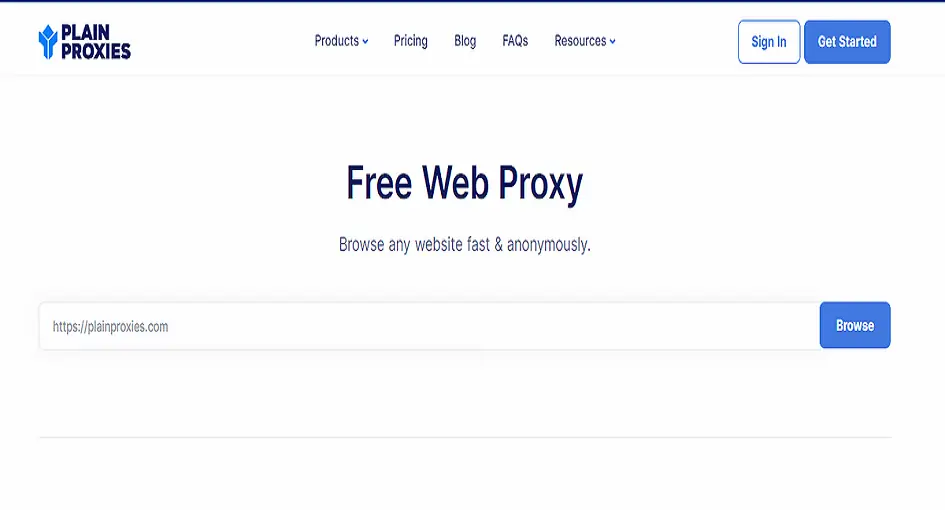Understanding the Basic Differences Between PlainProxy and VPN
Protecting internet privacy and security has become critical for both individuals and organizations in today’s connected world. Many people use tools like Virtual Private Networks (VPNs) and proxy servers to safeguard their digital identities and encrypt their internet traffic in response to the increase in cyber dangers and monitoring. It can be difficult to decide between various privacy-enhancing alternatives, though, particularly when presented with choices like VPNs and PlainProxy.
In the current digital era, where cyber-attacks and monitoring pose serious risks to sensitive data, including personal information, online privacy is essential. While both VPNs and PlainProxy provide ways to improve online anonymity, their methods and degrees of security are different. By acting as a go-between for a user’s device and the internet, PlainProxy forwards requests to the desired website or service on the user’s behalf and routes internet traffic via the proxy server. By hiding the user’s IP address, it improves privacy by making it difficult for websites to determine the user’s true IP address.
Certain PlainProxy implementations include encryption built in to guard against monitoring and intervention from outside parties. Furthermore, users of PlainProxy can access geo-restricted or blocked websites and services by avoiding content filters.
This in-depth tutorial examines the distinctions between VPNs and PlainProxy, as well as the benefits and drawbacks of each, and explains how to select the best option for your particular need.

Understanding PlainProxy
As its name implies, PlainProxy is a straightforward proxy server that stands in between your device and the internet. Your internet traffic is routed through the proxy server when you connect to the internet using PlainProxy, before it gets to its final destination. To provide some anonymity and security, PlainProxy encrypts your internet traffic and hides your IP address.
Advantages of PlainProxy:
- Ease of Use: PlainProxy is a good choice for people who are unfamiliar with privacy-enhancing software or who want simplicity because it is generally simple to set up and configure.
- Cost-Effective: Because plainProxy solutions are frequently less expensive than VPN services, they are a desirable choice for consumers on a tight budget.
- Customization: Several PlainProxy solutions come with sophisticated customization features that let customers adjust the proxy settings to suit their own needs.
Disadvantages of PlainProxy:
- Limited Security: Although VPNs offer a higher level of security and encryption than PlainProxy, they still encrypt your internet traffic. Even so, your information can still be susceptible to monitoring and interception, particularly if the proxy server is compromised.
- Single-Application Support: PlainProxy usually operates at the application level, i.e., it routes traffic through the proxy server only for certain apps or protocols. For users who need complete protection for all internet traffic, this could be restrictive.
- Possibility of Abuse: A few PlainProxy servers might be abused by carrying out cyberattacks or spreading malware. Users who connect to unreliable PlainProxy servers run the risk of experiencing privacy and security issues.
Understanding VPNs
A more complete approach to improving privacy is a virtual private network, or VPN, which encrypts all internet data between your device and the VPN server. With the use of a VPN, you can shield your data from prying eyes and keep track of your online activity by creating a secret, secure tunnel.
Advantages of VPNs:
- Enhanced Security: VPNs shield your data from cyberattacks, interception, and spying with strong encryption and security features. When viewing sensitive material online or connecting to public Wi-Fi networks, VPNs are quite helpful.
- Comprehensive Protection: By encrypting all of your device’s internet traffic, VPNs, as opposed to PlainProxy, offer complete safety for all of your online activities, including email, file sharing, and web browsing.
- Geolocation Spoofing: By masking their IP address and pretending to be somewhere else, users of VPNs can access geo-blocked material and services from any location in the globe.
Disadvantages of VPNs:
- Potential for Speed Reduction: If all internet traffic is encrypted and routed via a VPN server, there may be a decrease in speed and performance. This is particularly likely if the VPN server is overloaded or situated far away.
- Cost: Since VPN services usually involve a membership charge, those on a tight budget or those who just sometimes need privacy protection may be put off.
- Complexity: For consumers unfamiliar with networking principles or technical vocabulary, setting up and installing a VPN can be more complicated than utilizing a PlainProxy.

Choosing the Right Solution
It’s critical to take your unique requirements, priorities, and use cases into account while deciding between VPNs and PlainProxy.
Level of Security:
IA VPN can be a better choice if security and privacy are your top priorities because it offers complete encryption and protection for all internet traffic.
Ease of Use:
A PlainProxy might be adequate for you if simplicity and usability are vital to you, especially for email and basic web browsing.
Cost:
Think about how much VPN subscriptions cost compared to PlainProxy options. Remember that certain VPN providers provide inexpensive or free versions with constrained features and data use.
Geolocation Spoofing:
A VPN is the best option if you need to access geo-restricted material or services because it lets you impersonate your location and get around geographical limitations.
Speed and Performance:
Think about how routing and encryption affect the functionality and speed of the internet. Even though they could occasionally slow down, VPNs usually function better than PlainProxy options.
Conclusion: While both VPNs and PlainProxy provide advantages for improving privacy, they vary in terms of functionality, security, and complexity. You may choose the best solution to safeguard your online security and privacy by being aware of the distinctions between VPNs and PlainProxy and by assessing your own needs and objectives. In the linked world of today, it is imperative that you take precautions to protect your digital identity, whether you choose the ease of use of PlainProxy or the all-encompassing security of a VPN.


